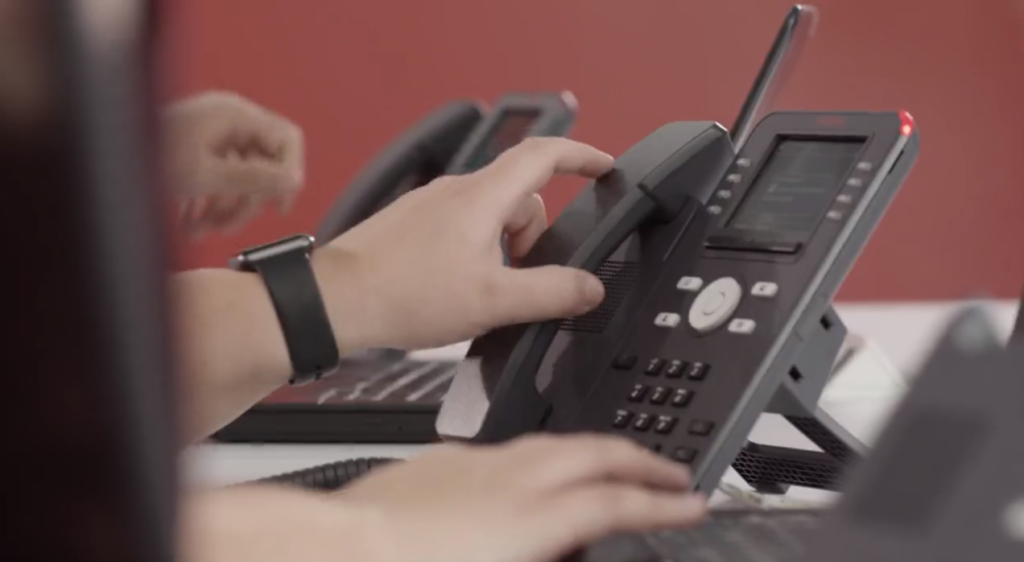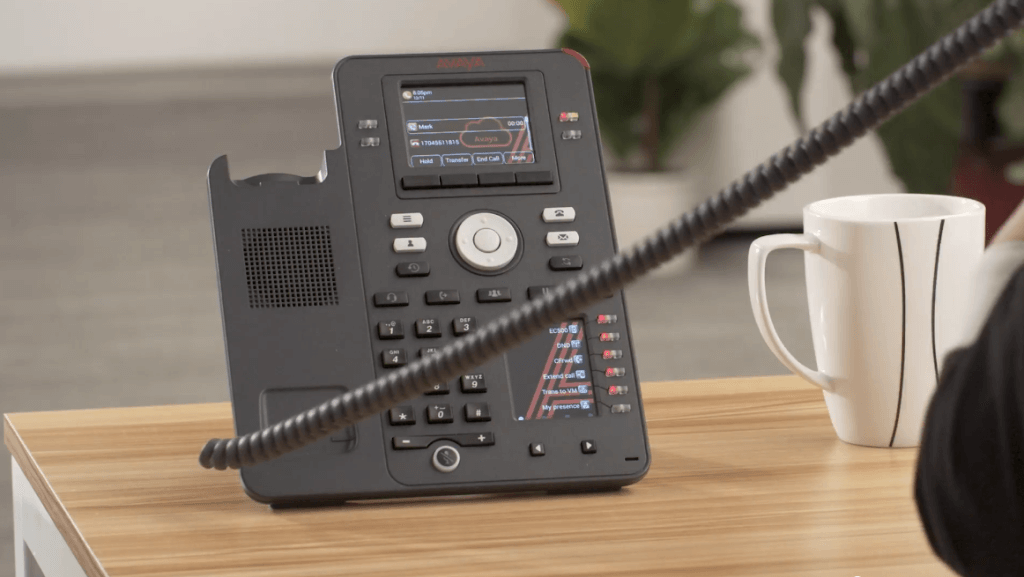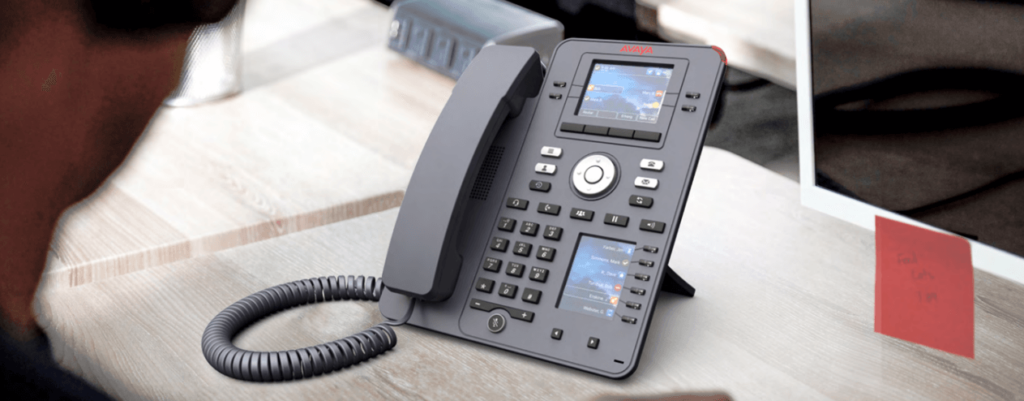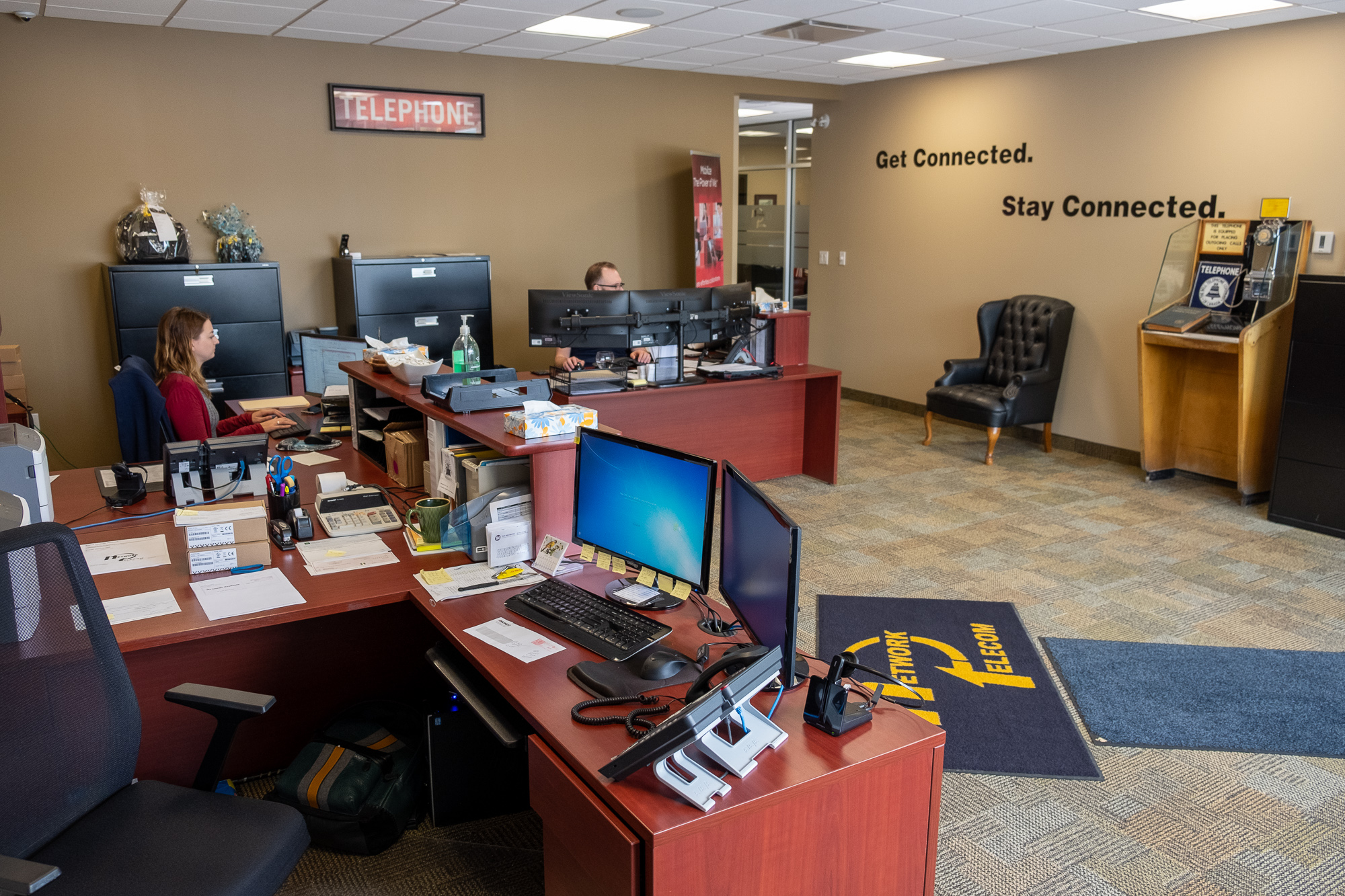If you are experiencing poor telephone line call quality, the following can help. The troubleshooting steps you need to take will depend on the type of business phone system you are using.
Click on the appropriate section to discover what may be causing your trouble and how to fix it. We’ve included sections for Landlines, VoIP phones, and cell phones.
1. Landlines
- Common Landline Telephone Line Call Quality Issues
- How to Fix Your Telephone Line Call Quality
- How to Troubleshoot Your Telephone Line Call Quality Problems
2. VoIP Phones
3. Cell Phones
If you are having trouble with your business phone lines, contact us at Network Telecom and we will help you resolve your problem as quickly and effectively as possible.
Key Takeaways
- Poor call quality has many causes. Landlines, VoIP phones, and cell phones each experience different issues such as static, echoing, dropped calls, or weak signals.
- Landline problems often come from wiring issues, faulty jacks, or interference from other devices. Basic troubleshooting includes checking cords, jacks, and devices before calling a technician.
- VoIP issues are usually tied to internet performance. Slow speeds, network congestion, outdated firmware, or improper router settings (QoS) can all disrupt call clarity.
- Cell phone call quality may be affected by weak signals, network congestion, hardware damage, or outdated software. Simple fixes like cleaning ports, updating software, or moving to a stronger signal area can help.
- Professional support saves time. If troubleshooting doesn’t resolve the problem, contacting a technician or service provider is the fastest way to restore reliable communications.
- Network Telecom is here to help. With over 45 years of experience, 24/7 availability, and a full inventory of parts, Network Telecom can quickly resolve telephone line issues and optimize your business communications.
1. Landlines

Learn how to fix telephone line call quality issues with your business phone.
Common Telephone Line Call Quality Issues
Telephone line call quality can vary based on how your phones were initially installed.
Listed below are the most common issues that business phone systems experience, as well as recommended solutions.
Static Interference
If you hear crackling, buzzing, popping, or a low hum or hissing, even when no one is talking, you are probably experiencing static interference. Static interference is usually caused by electrical interference due to a problem in your phone’s wiring. It can also be the result of interference from other electronic devices like a radio.
Solution: Follow the Troubleshooting Steps listed below to try and resolve the issue yourself. If that doesn’t work, contact a professional.

Learn how to fix telephone line call quality issues with your business phone.
Echoing
Some phone users experience echoing on their phone systems from time to time. It sounds as if their voice is being echoed back to them. Echoes like this are often the result of voice signals that are too loud. Electrical feedback due to problems with the phone wiring will also result in echoing sounds.
Solution: Call a professional technician to resolve this problem.
Cutting In and Out
If you have phone conversations that are choppy, where the voices of the conversants disappear and reappear so that both parties can only hear portions of the conversation, you may have a poor connection. Ensure all phone cords are securely plugged into the phone and wall jack.
This problem can also result in dropped calls where neither party can hear each other at all, or delayed voices where it seems like there is a hesitation before the other person responds.
Solution: Follow the Troubleshooting Steps listed below to try and resolve the issue yourself and if that doesn’t work, contact a professional.

Increasing your internet speed may solve your problem.
How to Fix Your Telephone Line Call Quality
Trying to work with a malfunctioning telephone system is not only frustrating but can be extremely detrimental to your business if you cannot communicate properly with your customers and potential clients.
If you are suffering from poor telephone line quality, don’t try to work around the issue. Instead, consider talking to a professional technician. They will have the equipment and experience to attempt to better identify the issue and then recommend and provide solutions.

The easiest way to resolve your issue is to call a professional.
How to Troubleshoot Telephone Line Call Quality Problems
Step 1: Determine which phones are experiencing an issue
Find out if all of your business phones are having the same problem. If it is only one or two, it could be that the phone itself needs to be replaced. Older or less expensive phones can break down and cause you to have poor telephone line call quality.
An easy way to test whether the problem is with your actual phone or the phone line is to put your phone on mute. If you still hear the annoying sounds, then the problem is with the line and not your phone.
Step 2: Check your phone cord
Make sure that your phone cord is plugged securely and straight into the jack. If it is loose or on an angle then that could be causing your problem. Also, check the cord itself to make sure that it is not damaged, if it is, try another cord.
Step 3: Check your phone jack
Try connecting your phone to another jack to see if the jack itself is the issue. If it works well in another one, then call a technician to replace the original.

Always double check that your phone is plugged in.
Step 4: Disconnect all your devices
Disconnect everything from your phone line: fax, modem, other phones etc. If you still hear the noise, it may be your phone. You can also borrow a different phone and test it and if the sound persists, you know that it is time to contact a technician.
Step 5: Reconnect your devices one at a time
If the sound is gone, add back the items one at a time until you hear the noise again. When you hear it, you know that you have found the faulty device. Replace or repair the device, or contact a technician.
Step 6: Move your phone
If a static sound is still present, try moving your phone away from other electronic devices. If all these steps fail it is time to contact a professional telephone systems technician.
2. VoIP Phones

VoIP and landline phones may need different troubleshooting.
Difference Between Landline and VoIP Telephone Line Call Quality
Traditional landline phones rely on a physical connection and dedicated circuits to transmit calls. They use analog signals sent over copper wires. In contrast, VoIP phones utilize your internet connection to make calls. They convert your voice into digital data packets that travel over the internet, similar to how you send emails.
This difference in technology can affect how you troubleshoot problems. Issues with a landline might involve checking for a dial tone or faulty wiring, while VoIP troubleshooting might focus on your internet connection or the performance of your VoIP service provider.
Troubleshooting VoIP Call Quality

You may also experience poor telephone line call quality with VoIP calls.
A VoIP call can also be plagued by choppy audio, static, or dropped connections. Here’s a breakdown of common reasons why these issues occur and steps you can take to get your VoIP calls sounding crystal clear again.
Internet Connection Speed:
VoIP calls are like data streams flowing through your internet connection. The smoother the flow, the clearer your calls will be. Run a speed test and ensure your internet plan offers sufficient upload and download speeds for clear calls.
Running an internet speed test is easy! Here’s how:
- Open your web browser.
- Search for “[internet speed test]”. Several popular options will appear.
- Click on a reputable service like Speedtest.net or Fast.com.
- Most sites will automatically start the test by downloading and uploading data. You’ll see results for your download and upload speeds in Mbps (megabits per second).
- Compare your results to your internet plan’s advertised speeds.
Solution: If you are not getting the speed that your plan advertises, you may want to contact your service provider or you may need to get a faster plan.
Network Congestion:
Imagine a crowded highway. Just like too much traffic can slow things down, heavy internet usage within your network can lead to choppy audio during calls.
Solution: You should try to minimize bandwidth-intensive activities like streaming while on calls.

Avoid bandwidth-heavy actions like streaming when calling.
Quality of Service (QoS) settings:
Quality of Service (QoS) refers to managing data traffic on a network. Imagine a busy highway with different types of vehicles. QoS is like a system that prioritizes certain lanes for critical traffic, like emergency vehicles. In a network, QoS prioritizes data packets that require a smooth flow, like VoIP calls or video conferencing, ensuring they experience less delay and buffering compared to other types of data transfer.
Solution: Some routers allow prioritizing voice data traffic (QoS). Explore router settings to see if enabling QoS improves your call quality.
Outdated firmware:
Firmware is essentially software that directly controls a device’s hardware. It acts like a middleman, translating instructions from the operating system (if there is one) into commands the hardware understands.
Unlike regular software you install on a computer, firmware is typically stored on a special type of memory that doesn’t get erased when the device is powered off. Updating firmware can sometimes fix bugs or introduce new features for your device.
Solution: Ensure your VoIP phone adapter or router has the latest firmware updates. Outdated firmware can cause compatibility issues.
Contact your VoIP service provider:
If the above issue persists, even after you have tried all of the troubleshooting tips, contact your VoIP provider for assistance with their network or equipment.
3. Cell Phones

Cell phones can also give you poor telephone line call quality.
Troubleshooting Cell Phone Call Quality
Making calls on your cell phone should be a seamless experience. But sometimes, dropped calls, static, or muffled audio can disrupt your conversations. Here are some common cell phone call quality problems and tips for troubleshooting them.
Issues with your actual cell phone:
Here are a couple of ways your cell phone itself can contribute to poor call quality:
Hardware issues:
Damaged microphones or speakers can directly affect how clearly your voice is transmitted and received. Dust buildup or grime around these ports can also muffle audio.
Solution: Try to clean out the ports if possible or you may need to invest in a new phone or get yours repaired.
Software glitches:
Occasionally, software bugs or outdated operating systems can interfere with your phone’s ability to handle calls effectively. Check to see if there are any updates that you need to do with your phone.
Solution: Restart your phone. A simple phone restart can sometimes resolve temporary glitches affecting call quality.
Network congestion:
Cell phone towers can become overloaded in crowded areas, causing dropped calls.
Solution: Try making the call again later or from a different location.

A weak signal can be another cause of poor telephone line call quality.
Signal strength:
Weak signal bars on your phone can be caused by a few factors related to either the distance or obstacles between you and the cell tower:
- Distance: Cell towers transmit signals over a certain range. If you’re far from a cell tower, the signal strength naturally weakens, leading to fewer bars. This is common in rural areas or remote locations.
- Obstructions: Walls, buildings, mountains, and even dense foliage can block cell signals, reducing their strength. This can happen even in urban areas with tall buildings or when you’re indoors.
- Phone Case: Some phone cases, especially metal ones, can weaken cell signals to a slight degree. This effect is usually minor, but it can contribute to weak signal bars in areas with borderline reception.
Solution: Weak signal bars can result in dropped calls or distorted audio. Move to a location with better signal reception.
Contact your mobile carrier:
If call quality issues persist, contact your mobile carrier for further assistance with their network or device settings.
Want Help Fixing Your Poor Telephone Line Quality?
If you need help fixing your poor telephone line quality, contact Network Telecom. Network Telecom is a leading national supplier of voice and telecommunications solutions. We would love to help you improve your current communications services while finding ways to help you save on your monthly costs.
Whatever your business telecommunications needs are, Network Telecom can help. We have been selling, installing, and servicing every type of phone system for over 40 years.
We can even help with training your employees on the features of your new phone system so that you can use it as efficiently as possible.
If your phone system is not working as it should, our trained technicians are available to help 24 hours a day, 7 days a week, 365 days a year. We carry a huge selection of parts in order to quickly solve any component issues you are experiencing.
In addition to our accredited and certified technical expertise, we offer:
Outstanding Service! We had a full phone system installed at a brand new facility and the experience was great. From sales to service the team followed through. The support we have received so far has been excellent. During our install the Network Telecom team even stepped in to help another company who couldn’t complete their portion of the install on time. They truly understand the big picture and will do what it takes to ensure the install is completed to keep your business up and running. 10/10
We just had an installation done today and it was a great experience. I am not at all tech savvy but everything was explained in a helpful and patient manner. The system seems great and we are really looking forward to running a more efficient office. Highly recommended!
Network Telecom has been the solution provider for our telephony requirements for a number of years. They always offer competitive pricing, but more importantly they provide exceptional service. Staff are quick to respond, and are extremely knowledgeable. Their Corporate values align well with ours, where Customer Service is first and foremost.



